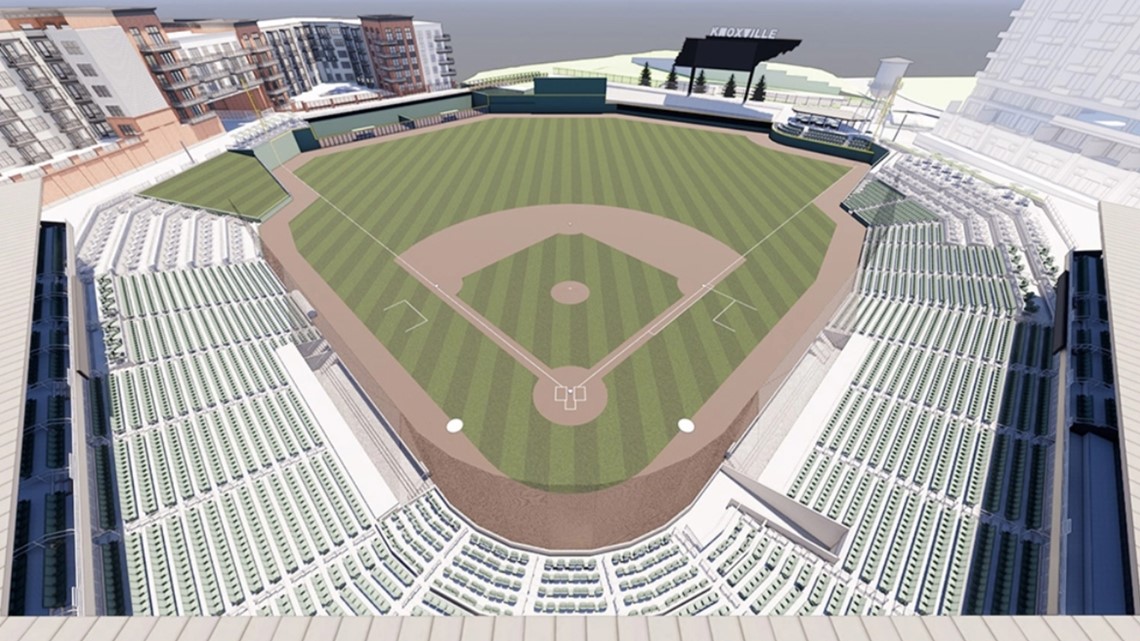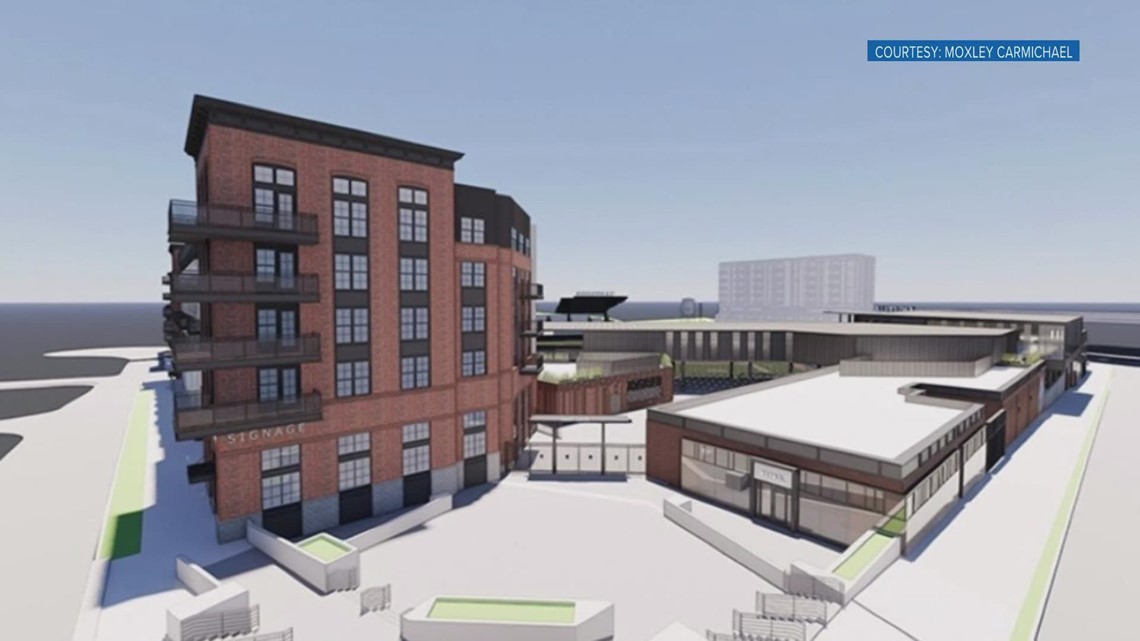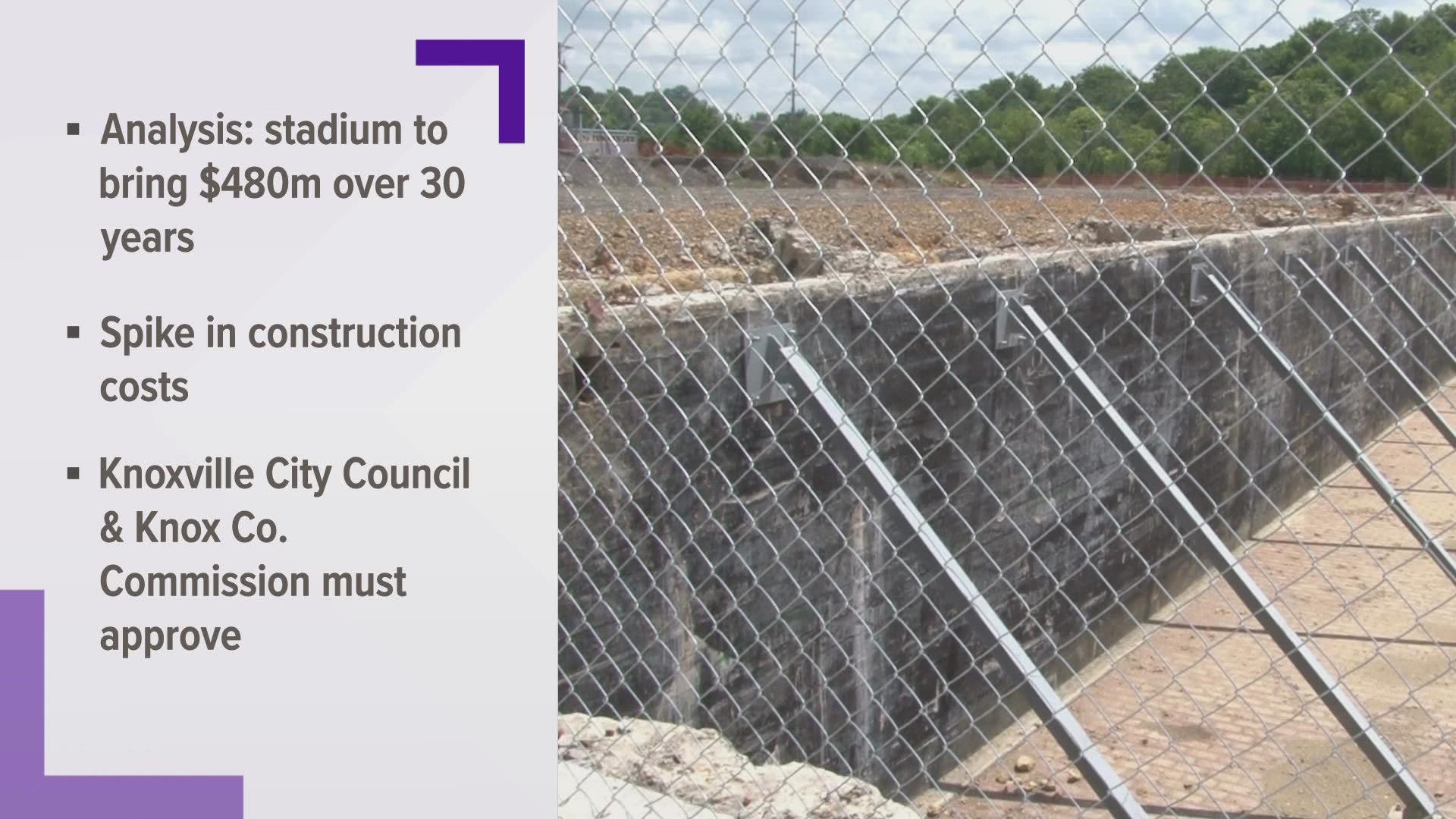KNOXVILLE, Tenn. — A tax district downtown around the proposed stadium project would be expanded under a public-private plan to help generate revenue to cover rising stadium construction costs, the city and county announced Friday.
Knoxville City Council, Knox County Commission and the city-county sports authority would have to bless the change. A public hearing is expected this month, with the governing bodies also set to vote in August.
City and county leaders, along with businessman and philanthropist Randy Boyd and his representatives, have been brainstorming ways to proceed with the $70 million-plus stadium project amid rising construction materials and borrowing costs. Expenses have shot up this year across the country amid a heated U.S. economy.


Exact construction costs haven't been released. But they've assuredly gone up more than the $65 million or so first pondered.
Boyd wants to move his minor league Tennessee Smokies baseball team from Sevier County to downtown Knoxville, likely in 2025. He's bought land for a stadium site along Jackson Avenue east of the Old City that he plans to turn over to the public.
Boyd also has agreed to pay rent on behalf of the team to help cover project costs going forward.
The city and county have worked for more than a year on figuring out ways to pay for construction and operations going forward. Besides baseball, the stadium could host soccer, concerts and community events to generate revenue.
A sports authority has been created that will issue bonds to pay for construction.
As part of his vision to bring baseball to the downtown, Boyd also has assembled a private development group to build commercial and residential space close to the stadium.
A tax increment financing district, which is a publicly authorized tool to help encourage development, is being created around the stadium site itself.
Developers can seek permission to create a TIF from the local government, arguing their projects create a boost in property taxes. Some of the tax revenue then generated by the development can go to subsidize development costs.
Boyd has agreed in talks with the city and county to cover more up-front costs right now. He'd get reimbursed under the agreement later through revenue created by the bigger TIF district, according to Friday's announcement.
Everyone involved -- the county, county developers and area residents -- benefits if new revenue within the district stays there for a defined period of time, Mayor Indya Kincannon and Mayor Glenn Jacobs said in the statement.
According to Friday's joint release from the city and county, the TIF around the stadium would expand to the nearby Magnolia Avenue Warehouse District. That's several blocks bigger than what was originally planned, according to Friday's announcement.
Officials view the stadium as a catalyst for greater growth that will create jobs, create wealth and generate higher tax revenue in an area that's been sitting largely fallow for decades.
"The expansion of the TIF district reflects a robust pace and scale for the expected private investment, and it will leverage those investments as part of a plan to address anticipated higher construction and labor costs for the stadium," according to the city-county announcement.
The new TIF boundaries, according to the city and county, would include to the east a rectangle bounded by Harriet Tubman Street, Winona Street, just north of East Fifth Avenue and East New Street.
To the west, the district would reach Central Street, Interstate 40, East Fifth Avenue and Summit Hill Drive, all west of Hall of Fame Drive.
Last week, Boyd, the city and the county announced at the sports authority meeting that they were trimming back stadium features somewhat to save money.


Construction is expected to start by early next year. The stadium could be ready for some events in 2024. Baseball likely will begin in 2025.

